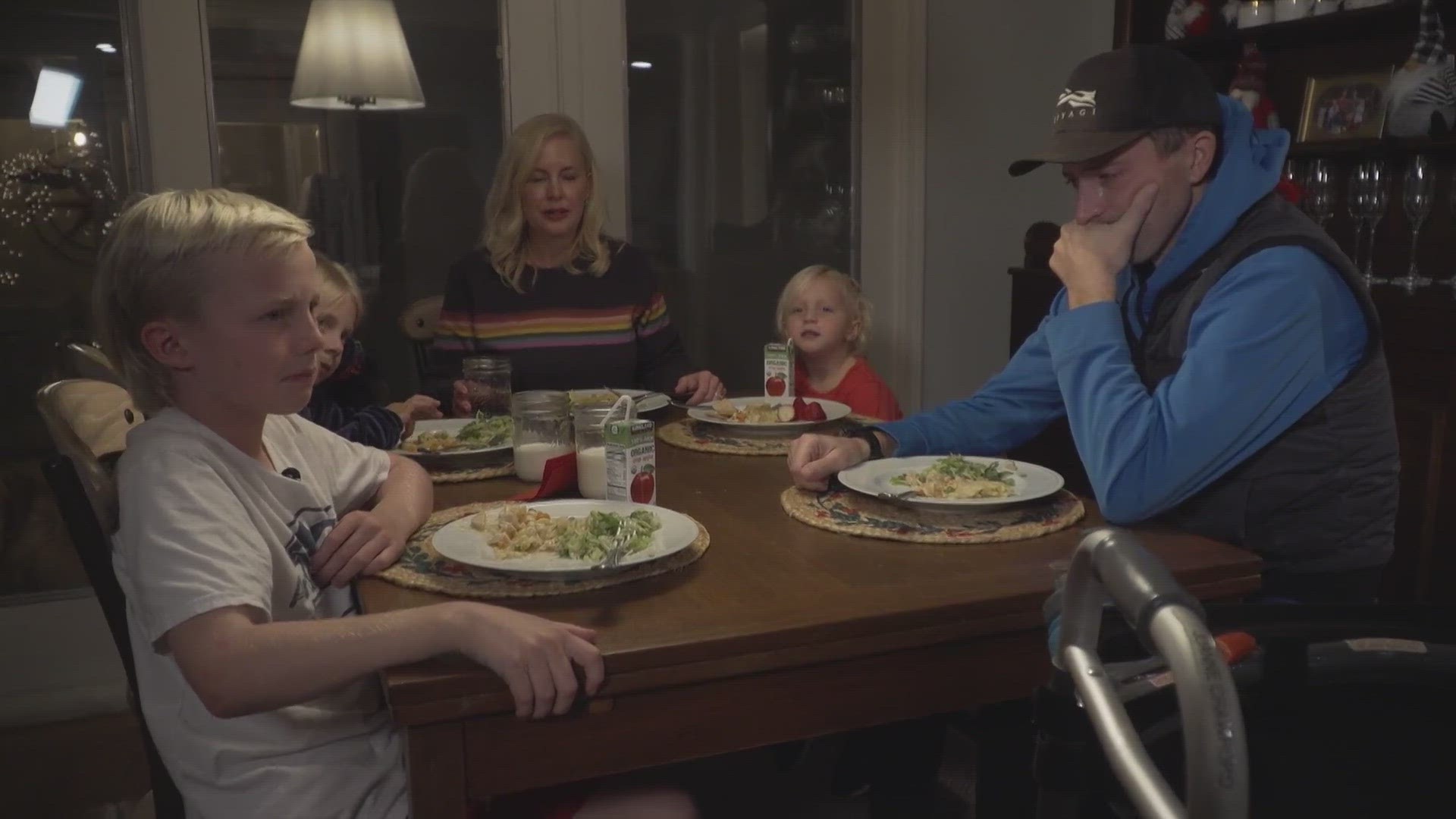SACRAMENTO, Calif — The holidays are an inconvenient time to get sick. That’s why Matt Gilbert, 37-year-old father of three and former pole vaulter at Sacramento State University, said he was determined to tough it out when he started feeling sick in early November.
Little did he know he would soon be fighting for his life in a medically-induced coma.
“It’s still, today, a mystery,” said Dr. Philip Chou, a surgical director at UC Davis Medical Center.
Chou says by the time he was on the case, Gilbert was already in serious trouble.
Gilbert’s medical team explained to him November 8 that a typically manageable Streptococcus A infection was out of control, developing into severe pneumonia.
“I remember just looking up at them and it’s making me really nervous how many doctors are in this room because it’s making me think that I’m a lot worse than I thought I was,” Gilbert said.
He says the team explained they needed to get his permission to intubate him and start working on him right away.
Despite their efforts, Gilbert’s condition worsened.
That’s when Chou stepped in with a split second decision to put Matt on life support — a device called ECMO, or extracorporeal membrane oxygenation.
The device takes over the function of the patient’s heart and lungs.
In a UC Davis Medical Center training video, ECMO program coordinator Laura Kenny explained it’s the most serious form of life support.
“The mortality rate is 50%,” Kenny said. “The patients that go on ECMO have an 80 to 90% chance of dying without it. They still only have a 50% chance of living with ECMO.”
Gilbert's life came down to a coin flip — one he says was won thanks to Chou’s quick decision.
“I truly owe him my life,” Gilbert said.
He remained on ECMO for four days. With the machine acting as his heart and lungs, his doctors attacked the infection with antibiotics.
In all, Gilbert spent three weeks in the hospital. His family never gave up hope.
“It’s been hard. But once I heard my dad was coming back. I felt a lot better,” Harrison, Gilbert’s 9-year-old son, said.
Grateful to be home, he still faces a long road to recovery. The weeks under anesthesia cost him the muscle strength he spent a lifetime building.
“I could go out for a run at any given time before. Now, it's difficult to get up just to go to the bathroom,” Gilbert said.
The mystery of how someone seemingly so fit, young and healthy could get so sick from a common strep infection remains.
“I think it is a freak occurrence. But at the same time, we need to listen to our body,” Chou said.
Looking back on the ordeal, the Gilberts agree: "be proactive about your health."
“If you're sick and you feel think it's something coming on, do what you can. Go see your doctor,” Gilbert said.
While his family may never know why exactly he got so sick, they’re glad he’s home.



















